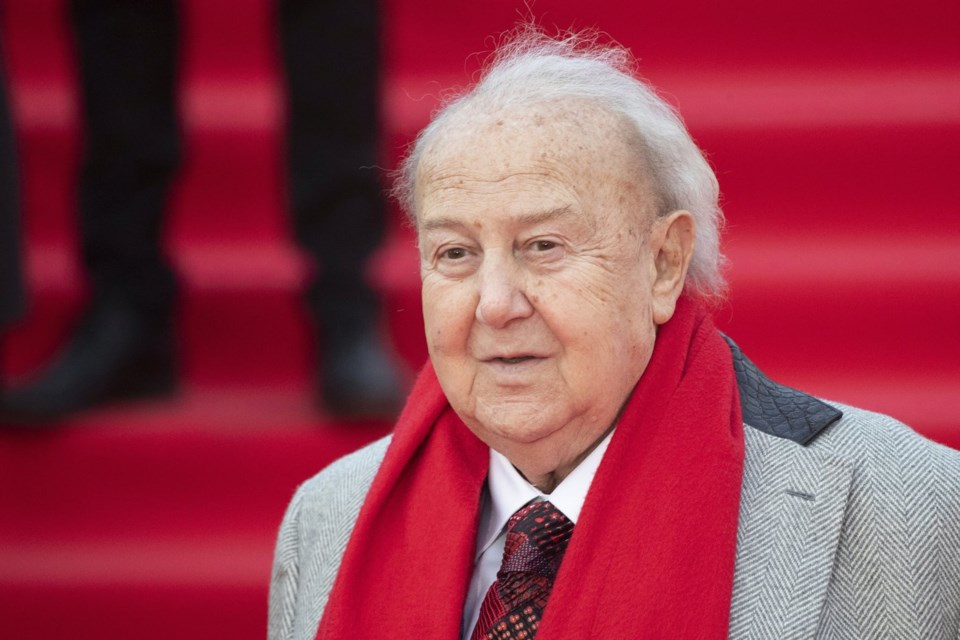MOSCOW (AP) — Zurab Tsereteli, a prominent Georgian-Russian sculptor known for colossal, often controversial, monuments, died early on Tuesday at 92.
His assistant Sergei Shagulashvili told Russia’s state news agency Tass that Tsereteli suffered cardiac arrest.
Tsereteli was born on January 4, 1934, in Georgia, which was part of the Soviet Union at the time, in the capital Tbilisi.
In the 1970s, Tsereteli became an art director with the Soviet Foreign Ministry, traveling the world and decorating Soviet embassies. In between, he worked on Mikhail Gorbachev’s summer house in Abkhazia.
“I don’t know why they chose me,” he said in a 2013 interview. “But I went through a good school - maybe that’s why. A school that synthesised architecture and monumental art! I had good teachers.”
In 1989, a monument designed by Tsereteli was erected in London. In 1990, another one was unveiled in front of the United Nations headquarters in New York.
After the Soviet Union collapsed in 1991, Tsereteli moved to Moscow and built a rapport with then-mayor Yuri Luzhkov. The relationship guaranteed him regular and lucrative commissions. He designed several squares and two metro stations in central Moscow and put up a dozen massive monuments around the city.
Tsereteli’s distinctive style prompted much criticism over the years, both in Russia and abroad. Critics argued his pieces were too colossal and didn’t fit in the city's architecture.
One of his most controversial monuments was in 1997 when a 98-meter-tall Peter the Great standing on a disproportionally small ship was erected a block away from the Kremlin, prompting protests from Muscovites.
Tsereteli tried to put up a similar monument of Christopher Columbus in New York. Russian media reported in 1997 that current U.S. President Donald Trump supported his plans at the time, but city authorities rejected them. After being turned down by Columbus, Ohio and Miami as well, the statue found a taker in Puerto Rico.
Russian President Vladimir Putin in 2003 awarded Tsereteli Russian citizenship “for special services to the Russian Federation.”
In 2010, Luzhkov was dismissed as Moscow mayor. The new city administration preferred Western architects to work on ambitious urban projects, and Tsereteli was shifted to the sidelines.
However, Tsereteli remained president of the Russian Academy of Arts and director of the Moscow Museum of Modern Art, which he founded in 1999.
His legacy includes some 5,000 pieces in Russia, Georgia and several other countries.
The Associated Press



